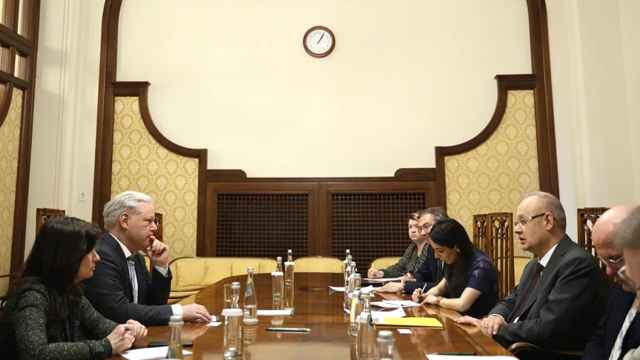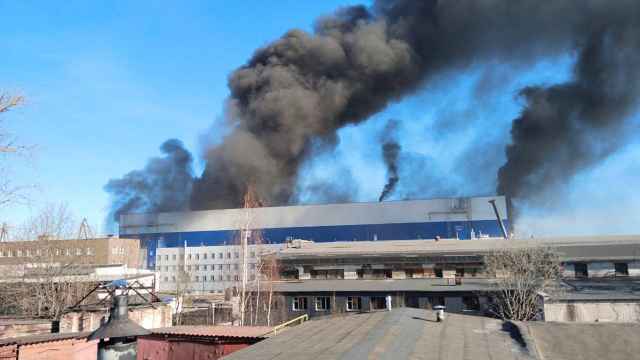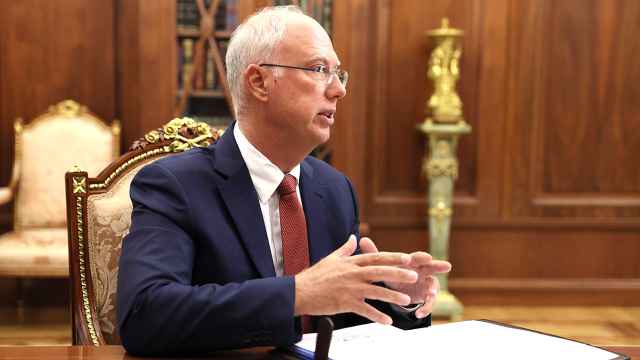State nuclear agency Rosatom has confirmed it will take a stake in transport conglomerate Delo Group as part of Russia’s plans to capitalize on Arctic shipping routes.
In a statement published on Rosatom’s website Tuesday, the organization said the deal would “launch a global international transport and logistics business” to develop Russia’s infrastructure and capacity to benefit from goods shipments from Asia to Europe via the Northern Sea Route.
The Northern Sea Route is a shipping route that cuts across the Arctic, shortening journey times between Europe and Asia. A ship travelling from South Korea to Germany via the Suez Canal takes 34 days, compared to 23 via the Northern Sea Route, The Economist reported.
To date, the route has not been heavily used due to a number of difficulties and associated costs for those transporting goods. At the moment, there are only around two ice-free months per year. As Arctic ice continues to melt due to climate change, the economic viability of the route is expected to increase.
Rosatom, which owns a fleet of nuclear-powered icebreakers, is responsible for managing the route and capitalizing on the potential benefits of increased shipping on the Northern Sea Route for Russia.
Russian news website RBC reported earlier that Rosatom will receive 30% of Delo, which is run by former Russian lawmaker Sergei Shishkarev, in the deal. The two companies confirmed only that Rosatom will receive a “non-controlling stake”. Neither Rosatom nor Delo disclosed the financial details of the tie-up, which will be completed before the end of the year.
Last week Delo Group won a $940 million privatization auction for Russia’s largest container transport company, although Rosatom said Tuesday it will not be financing that deal.
A Message from The Moscow Times:
Dear readers,
We are facing unprecedented challenges. Russia's Prosecutor General's Office has designated The Moscow Times as an "undesirable" organization, criminalizing our work and putting our staff at risk of prosecution. This follows our earlier unjust labeling as a "foreign agent."
These actions are direct attempts to silence independent journalism in Russia. The authorities claim our work "discredits the decisions of the Russian leadership." We see things differently: we strive to provide accurate, unbiased reporting on Russia.
We, the journalists of The Moscow Times, refuse to be silenced. But to continue our work, we need your help.
Your support, no matter how small, makes a world of difference. If you can, please support us monthly starting from just $2. It's quick to set up, and every contribution makes a significant impact.
By supporting The Moscow Times, you're defending open, independent journalism in the face of repression. Thank you for standing with us.
Remind me later.






